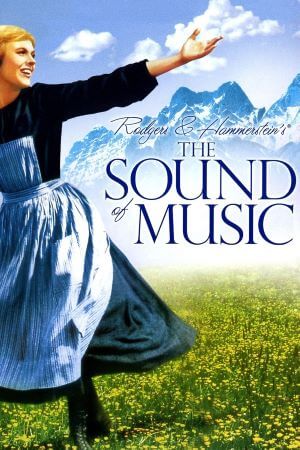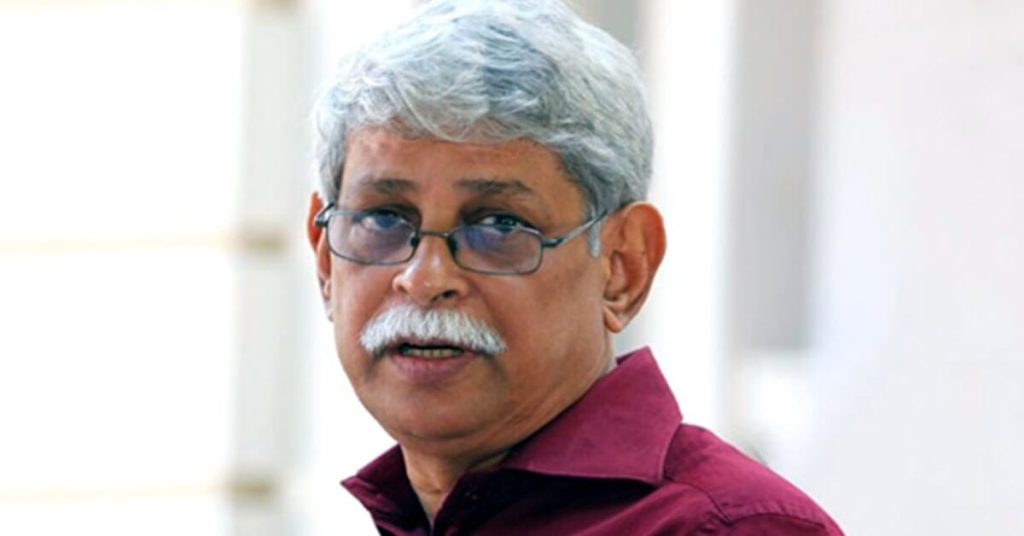Last updated on September 8th, 2023 at 04:23 pm
Philosophy of love is to philosophise love, “a branch of social philosophy to explain the nature of love”. Philosophy is defined as the “love of knowledge and wisdom. The study of the most general and abstract features of the world and categories with which we think: mind, matter, reason, proof, truth, etc”., while love can be defined, in a simpler sense, as “ eros, connote desire, longing, disequilibrium, and is generally sexual in nature. However, to Plato, eros may start with a particular person as to its object, it soon becomes transformed from a particular person to their beauty”. We will inspect some lovely ideas romantic and godly love.
The philosophy of love is a complex and diverse field, with many different perspectives and theories. Some philosophers, such as Plato and Aristotle, have argued that love is a desire for something good, and that it can help us to achieve happiness and fulfilment. Other philosophers, such as Søren Kierkegaard and Martin Heidegger, have emphasized the subjective and existential nature of love, arguing that it is a profound and personal experience that cannot be fully understood or explained. Still, other philosophers have focused on the social and cultural aspects of love, arguing that it is shaped by our relationships and our society. Overall, the philosophy of love is a rich and varied field that explores many different aspects of this complex and powerful human emotion.
Ideas of love
Apart from love as eros, there is also plillia, friendly love that includes fondness and desire for the good of others; Storage, the parental love or children’s love for their parents; and agape, godly love or Christian love or universal love that regards no reciprocity. French writer Stendhal in his book Love (De l’amour) lists four kinds of love: physical love, purely sexual in scope; love as a social game, removed from passion; vanity love, a type necessary for high social standing; and passion, the finest form of love, which he idealized and to which he devotes most of his attention about his lover, Metilde.
I am a bit nostalgic in this hour of dawn. It takes me back to the very early age of mine while love seemed inexorably authentic in its position and with a very fair equation, where today the labyrinth of love comes down with unspeakable chemistry, thereby its stands are complex.
William Shakespeare said, “Love looks not with the eyes, but with the mind, And therefore is winged Cupid painted blind.” The prevailing explanations of love are from psychologists who consider love a healthy behaviour. Psychologist, Eric Erikson, for example, says that love is a necessary part of finding intimacy in human development. And of course, evolutionary theories see it as a part of the process of natural selection.
I summon the memories and recall the days I had over the past one and half decades back when I was loved by larger measure and hated by the smaller. Furthermore, today it is verily antithetical, conditional, selective, abusive, misinterpreted, materialistic, and conforms to what philosophy says- “love with or for cash ”. “One is loved because one is loved. No reason is needed for loving”, Says Paulo Coelho.
One is loved because one is loved. No reason is needed for loving.
Paulo Coelho
I held long vengeance of modern love to vent on, as it today fall prey of modern theory of –“that it is a feeling of two individuals toward each other based on looks that must necessarily not be lasted as long as any of the two aspires not to carry and should so be departed instantaneously at the moment the vested interest is gone and lust dies of looks”. Stephen Chbosky said, “We accept the love we think we deserve”.
Platonic love has lost the right track, from the moment the hailstorm of sinister dropped; material deluge came; and paper began representing gold and silver, diamond and sapphire, thereby real struggle began for the false dreams. The blindfolded naïve love got its eyes opened from the hours it found its way to selfish gain and off the track as soon as it fell in the rivalry of legacy-hunter.
And the legacy-hunter begets cupboard love. Now ‘love’ distinguishes our financial health, political ascendance, individual achievement, personal savour, familial fume, genetic congenital, genital preference, and the heroic physiognomy. Plato’s “Every heart sings a song, incomplete until another heart whispers back. Those who wish to sing always find a song. At the touch of a lover, everyone becomes a poet”, longer resonates true to our ear.
Every heart sings a song, incomplete until another heart whispers back. Those who wish to sing always find a song. At the touch of a lover, everyone becomes a poet.
-Plato
So, ‘love’ in modern times is all deleterious with despondency, objectivity, and disenchantment. Its fervidness for noble cause dies from the date when we crucified the feeling of falling with nature and naturals, years ago; and ossified fabricated thoughts on it by devising contrivance repression, like in Islam, with endogamy in pantheism.
The universality of ‘love’ nosedives with the rapid rise of free choice, and hooliganism and gone so to be unrequited. Munificence love of Paris for Helen, favoured by Aphrodite, in the Homeric epic the Iliad, says so – at the wedding ceremony of Peleus and Thetis, Eris, the goddess of discord, threw a golden apple into the group of guests. The words ‘for the fairest’ were inscribed on it. Hera, Athena, and Aphrodite all claimed the apple. They went to Zeus for his opinion. But Zeus appointed the shepherd Paris to judge the contest.
The goddesses approached Paris, and each tried to bribe him by offering her speciality. Hera offered him wisdom and military successes; while Aphrodite offered him the love of the most beautiful woman in the world. Paris preferred the latter and therefore chose Aphrodite as ‘the fairest’ thus he earned the undying hatred of Hera and Athena thereby. Paris was given a great welcome in Sparta. Menelaus was so unaware of his guest’s intention that he sailed off to Creat to attend a funeral leaving Helen in charge of the guests. Paris then abducted Helen and returned to Troy”.

Notice that even the gods and goddesses who happen to create the ‘beauty and beasts’ are seen to discriminate and differentiate. Mere mortals supposedly borrowed the idea of beauty from the goddesses of legends, germinating the idea of preferred look to love, or to be loved by fellow mortals, human beings.
‘Love’ has learnt to escape us ever since we discovered to abduct it by our power, influence, and resources. Love sees no hope to exist if it has not grown out of mutual consent and if there is great respect for opulence rather than respect for one’s inner being. “You don’t love someone for their looks, or their clothes, or for their fancy car, but because they sing a song only you can hear”, Oscar Wilde said once.
So was the injustice of ‘love’ unjustly happened to Helen’s love for Menelaus, because he was the wealthiest—“Helen was the only prettiest woman who had ever lived, but her body, as well as her limbs, were without a flaw. No wonder her father had a difficult time choosing a husband for her. When she was sixteen, the most famous kings in Greece had pressed their suit, including Diomedes, Aias, Achilles, Odysseus, and Menelaus. Helen and her father chose Menelaus because he was the wealthiest”, Homer writes.
The philosophy of love of Alexander the great was demonstrably different in the form of his ‘love’ for Roxana and for the Persian Queen was never less than his average avarice for Persian land to bring under his hegemony by giving the marital recognition. Neither of them was as loveable as himself. His quest for ‘love’ was not a quest for eternity, but occupation. Achilles’ love for Briseis was sheer fleshy and not more than that of lust for her beauty and momentary proximity of infatuation that lasts as the Proverb states-“charming is fleeting’.
Our autonomy, sovereignty, and dedication to ‘love’ have long been banished as the philosophy of love keeps taking a changed form in every new generation. And that bought illusion, delusion, prejudice, conceit, snobbishness, haughtiness, and smugness with the bitter upshots like an immature and promiscuous corporeal consortium, uncertain or unwanted asceticism, and prevalent familial brokenness.
The human preponderance of unnatural behaviours has grown. Our unnatural pretexts, preference for unreal performance subvert the natural laws of existence. Our noble state as ‘social animals’ has been overthrown into the state of a substandard part of nature. Everything that part of nature never appears to be corrupted by any other part of nature, but it’s only us, the human being responsible for corrupting it with our corruptible mind of corrupted love. Not any species kills its fellow species in the biodiversity.
Albert Einstein once said, “Men invented dynamite to kill men, but no mouse will invent a mouse trap to kill another mouse“. Regrettably, it is only the human being, among all the living organisms, that is trained, skilled and abides by the law of predatory to destroy its fellow being with constant try ever since the notion of happiness in the accumulation of wealth came into being. The notion of universal love or agape was subjugated.
Romantic disaster is still in effect from the epoch we forget to define the human ‘love’ in accordance with divine nature—the love that is to say— is patience, kindness, liking, meekness, dedication, endurance, forgiveness, and truth-loving.
God commands if we love to claim to have love or be loved, ‘ we must love first, so as to it permeates in the heart of people by partaking God’s love. It is like a glass of water embodies, for its adequacy, a Jar full of liquid it is shared by the superior to the inferior with the aim to cause the inferior’s value by filling the emptiness.
To love God is to love His creations, for God’s invisible qualities, eternal power, and divine nature is clearly seen through what He created –said Saint Paul. No one claim to have loved God-hating any of His creation. So is true for human love for a human. No one can claim to have perceived the ultimate meaning of love of having found the real purpose of any religion or religious by hating the loved one’s teensy part of the trait that is not likely to go with one’s likeness or preference.
People’s service to God is also a service to people, for a devotee’s love for God is the same love to the devotee’s fellow existence, is the divine philosophy of love. This is what the Principal (Meryl Streep) (Doubt, the Film), who was overall in charge of the Cathedral School could not beseem her mentorship as she looks askance at the relation between Father Flynn and the pupil altar-boy, Donald Miller. A pure representation of Philia by Father Flynn.

She was never able to comprehend whether it was love or taking advantage of the pupil’s frailty. Her idiosyncratic scurrilous assumption was sufficient in bringing an allegation against the Father because the boy would always take after him when he was victimised by his peers because of his African complexion. And, because it was only the Father who was able to pacify the boy’s anguish and solicitude.
But, the doubt of the Principal Mother Superior was so compelling that the Father’s divine philosophy of love could not be established in the boy’s heart, and had no choice but to leave the cathedral for the boy’s good, and let the boy finish the session instead when the Father could have let the boy go, but the idea never crossed his magnanimity.
The same was the case with Maria who, by the instruction of her Rev. Mother of the Abbey, in ‘Sound of Music (1965) came up with the idea of leaving the Abbey to love the motherless children. Maria runs off leaving the seven children behind she was a governess to; never thought twice as soon as she learnt the affection of the Captain toward her because she pledged her life to Lord’s service.

She would recall that ‘when God closes the door, somewhere He opens the Window’, but did she not forget that when God closes the door of hatred, somewhere He opens a window of surpassing love? It is worth bearing in mind what the Rev. Mother says —“loving men does not mean loving Godless”, because, I think and when we believe in any existence of a Creator, loving his creation is as good as loving the Creator of the Creation.
Here love misses its capital root to keep falling disaster as we fail to correspond our love to its original and capital force. Our ‘love’, thus, gone to be affectation from affection. “Love all, trust a few, do wrong to none”, William Shakespeare said.
Love dies as pornography finds its way into our lives as a dominant force and lovers and beloved make their choices to opt to their affection, attraction, and passion through the lens of Fifty Shades of Gray. Love and desperation of love degraded into domination, brutality, beastliness, insatiable lust, thirst, and pervertism.
Loving men does not mean loving Godless.
The Sound of Music-1965
Love finds its way to expiration as we find it under conditions, the sun of love for William Wallace to Moron has been set from the very moment she gives her life as an escape goat of love to king Edward the Longshanks and that setting sun rose as freedom was achieved later and, thus, as an autonomous nation-state eventually.
So many a story, history, epic, topics, incidents, and accidents of ‘love’ have taken place since human emergence. It is the only thing that mesmerises us as a whole. Inadequacy, unavailability of ‘love’ makes life as good as dead in the living state; acceptance of it prolongs life. Love knows no rejection, but the grower of it.
Love loves us as we love its lovely feelings to love the beauty and the beasts, simultaneously. Love loves us irrespective of competency, but not all people love all irrespectively. The primal aim of ‘love’ is love itself. Nicholas Sparks wrote, “Love is like the wind, you can’t see it but you can feel it.”
What is important in life is life itself not the result of life.
The German poet Goeth says, ‘what is important in life is life itself not the result of life’. Likewise what is important in love is love itself, not the result of love. Love always lifts your soul, though it might often let you down by being used by the lover. This resonates with what C.S Lewis says. He said that “To love at all is to be vulnerable. Love anything and your heart will be wrung and possibly broken”. The brokenness of the heart also helps us rise above our inability and makes us fitter for the struggle of life.
No great pain of rejection can make human life so devastated, hopeless; though it’s the only pain that is expected by all and hated by few. And this is the affliction that people aspire to undergo calamity after calamity, thus finding self-existence through the constant suffering of proving bona fide. Being loved once opens up the channel of triumph over calamities.
Love is the basis of Creation. So, love is in the feelings of all living organisms. Love is the cheapest commodity and still love is the only commodity of the highest value. Love, love is loved, and also falsified, objectified, unjustified, and demoralized, even though ‘love’ is the only commodity the world is badly missing.
Lastly, the absence of God’s ‘love’ within us, is true also of no use in knowing earthly ‘love’, for God, is the cardinal of our partaken parts of ‘love’. Therefore, let us love all irrespective of all incompetencies in the way God made us through His unconditional ‘love’. Alfred Tennyson said, “Tis better to have loved and lost Than never to have loved at all.” You should love to be worthy of love.






